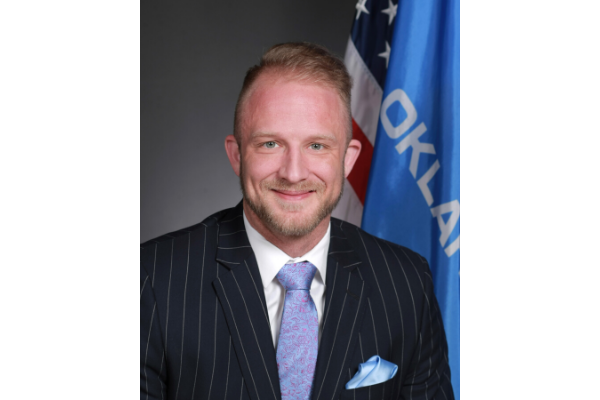OKLAHOMA CITY – Any school policy that prohibits students from wearing “tribal regalia” during a high school graduation ceremony would almost certainly be deemed intolerable under a bill filed in the Legislature.
A school policy prohibiting students from wearing tribal regalia during a high school graduation – “if that conduct is motivated by the student’s religious beliefs” – would be considered to “substantially burden the student’s free exercise of religion,” House Bill 2783 provides.
The Oklahoma Religious Freedom Act decrees that no governmental entity may substantially burden a person’s free exercise of religion unless it demonstrates that application of the burden is “essential to further a compelling governmental interest.”
HB 2783 declares that “a compelling government interest” shall not include a school policy whose interest is “primarily a mere desire for aesthetic uniformity.”
The bill was filed by state Rep. Collin Walke, D-Oklahoma City. The measure was introduced for consideration during the Second Regular Session of the 57th Oklahoma Legislature, which convenes at noon Feb. 3.
Several members of Native American tribes “reached out to me regarding this type of legislation,” said Walke, an attorney. “To make it clear to school districts, I was asked to run this measure.”
In addition to Walke’s legislation, the State Department of Education is also looking at similar actions. At the Inter-Tribal Council of the Five Civilized Tribes’ quarterly meeting Friday morning at the Hard Rock Hotel and Casino, State Supt. Joy Hofmeister announced that her department is developing a model graduation policy for school districts regarding eagle feathers and tribal regalia at commencement ceremonies.
The Latta school district came under fire last year when it told a high school senior he couldn’t wear his Native American regalia, including a Chickasaw Nation honor cord plus a beaded cap and feather, on Graduation Day.
The student’s mother contacted the American Civil Liberties Union, and the student and his mom contacted the Native American Rights Fund. Subsequently, the ACLU, NARF, and the Oklahoma Indian Legal Services sent a letter to Latta’s school superintendent, urging him to reconsider his decision.
During a meeting on May 6, 2019, at which the Latta school board was informed about the cultural and religious significance of eagle feathers and other feathers, the board amended its graduation policy to accommodate the student’s request.
In a related matter, Oklahoma Attorney General Mike Hunter sent a letter dated Oct. 23, 2018, to the Vian Public Schools Board of Education, advising them that forbidding Cherokee Nation tribal members from wearing ceremonial eagle feathers on their graduation caps would be unconstitutional.
For Vian Schools to ban that practice would not constitute a “compelling” government interest, Hunter advised. “As a general matter,” he wrote, “’ compelling’ interests are those of the highest order, meant to prevent the gravest of outcomes and to advance paramount state concerns. This likely does not include a mere desire for aesthetic uniformity ...”
The U.S. Census Bureau says the total Native American population in the U.S. numbers 6.79 million. Oklahoma has 280,638 Native Americans, the greatest number of any state, and Ari- zona ranks a close second with 271,946, according to the Census Bureau. Alaska is the state with the highest percentage of Native Americans in its population, at 13.77%.


